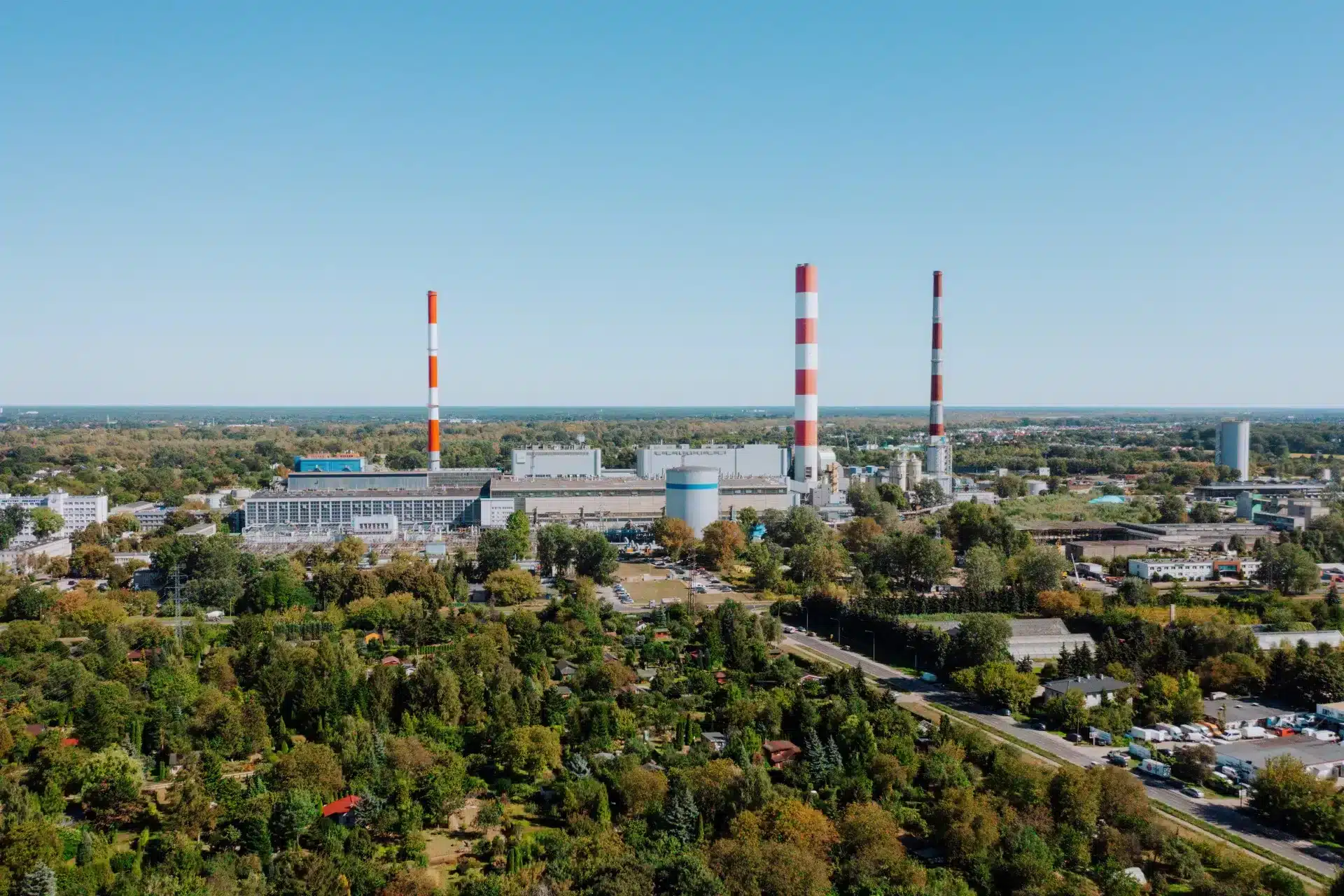Żerań, Siekierki and Pruszków Power and Heat Producers, along with Wola and Kawęczyn Heating Plants are heat assets of ORLEN Group in the Warsaw Agglomeration, which as of 2035, will be completely coal-free. The decarbonisation of these assets will rely on heat produced from gas and renewable energy, the recovery of waste heat from sewage, exhaust fumes and cooling systems, as well as heat accumulators. The implementation of this plan will result in a CO2 emissions low by almost 3 million tons, representing a 55% decline compared to 2019. The estimated EBITDA operational profit of the conglomerate linked to the implementation of the strategy could amount to as much as PLN 4 billion annually by 2035.
The heating power installed in ORLEN Group’s Warsaw heating assets currently relies on coal for 61.5%, gas for 22.5% and other technologies (light oil and biomass) for 16%. By 2035, coal will be entirely phased out from power generation, whereas the fuel mix will be based around 67% gas and nearly 25% provided by renewable energy and new technologies utilizing potential waste heat. The mix will be supplemented with light oil, which after 2035 will gradually be replaced by bio-oil and other alternative fuels. By 2035, waste heat is expected to power almost 600 MWt of production capacity.
– The adopted comprehensive climate neutrality plan for the heating sector envisages that by 2035 we will build a system based on gas energy supported by renewable energy sources, new technologies and waste heat recovery. The use of circular economy solutions will not only bring us closer to environmental goals, but also bring real savings by reducing the use of conventional fuels. We want to maximize the use of EU financial support envisaged for such projects in the implementation of the plan – says Ireneusz Fąfara, CEO of ORLEN.
The ORLEN Group, through PGNiG TERMIKA, provides almost all network heat for Warsaw. The adopted climate neutrality plan foresees the development of cogeneration and peak gas units, heat accumulators and electrode boilers powered by renewable energy, during periods of excess in the network. The plan aligns with the principles of the Circular Economy, among others through the recovery of heat from municipal sewages and cooling water systems and flue gases which are a by-product of solid and gas fuel combustion. For the Warsaw heating system, the adopted plan also opens the possibility of obtaining an additional allocation of free CO2 emission allowances for heat, which valued between 2026 and 2030 are estimated at even PLN 940 million.
The largest decarbonization investments are planned at the Siekierki Power and Heating Plant. The basis for this is the planned new steam-gas unit with a capacity of over 550 MWe and 330 MWt, which is to be built by 2030. The process of obtaining a permit for the construction of a gas pipeline from Gassy to Ec Siekierki, crucial for the implementation of this investment, is currently underway. By 2035, three flue gas condensation systems are also planned, which allow for the recovery of heat from the condensing steam, supported by heat pumps. This solution will significantly increase the productive heat capacity without the need to increase the fuel flow. An electrode boiler is also planned, which eventually will be powered by renewable energy during periods of excess in the network, supported by a new heat accumulator. In the Żerań Power and Heating Plant, a multi-fuel block will be built, partly based on biomass, as well as three flue gas condensation systems, supported by heat pumps and a heat accumulator. ORLEN Group plans to expand heat storage systems in Ec Siekierki and Ec Żerań, which eventually will be able to accumulate up to 6,400 MWh of heat.
By 2050, the implementation of the plan is to guarantee total emission neutrality of heat supplied by the ORLEN Group to the Warsaw and Pruszków heating system. This goal will also be supported by the use of bio-methane, bio-oil and CO2 capture and storage technologies, currently under development.
The Climate Neutrality Plan of PGNiG TERMIKA’s heating assets has been submitted to the National Center for Settlement and Emissions Management, which administers the ETS system in Poland. After verification at the national level, it will be assessed by the European Commission.
Source: https://managerplus.pl/aktywa-cieplownicze-orlen-w-aglomeracji-warszawskiej-calkowicie-zrezygnuja-z-wegla-do-2035-r-33186
